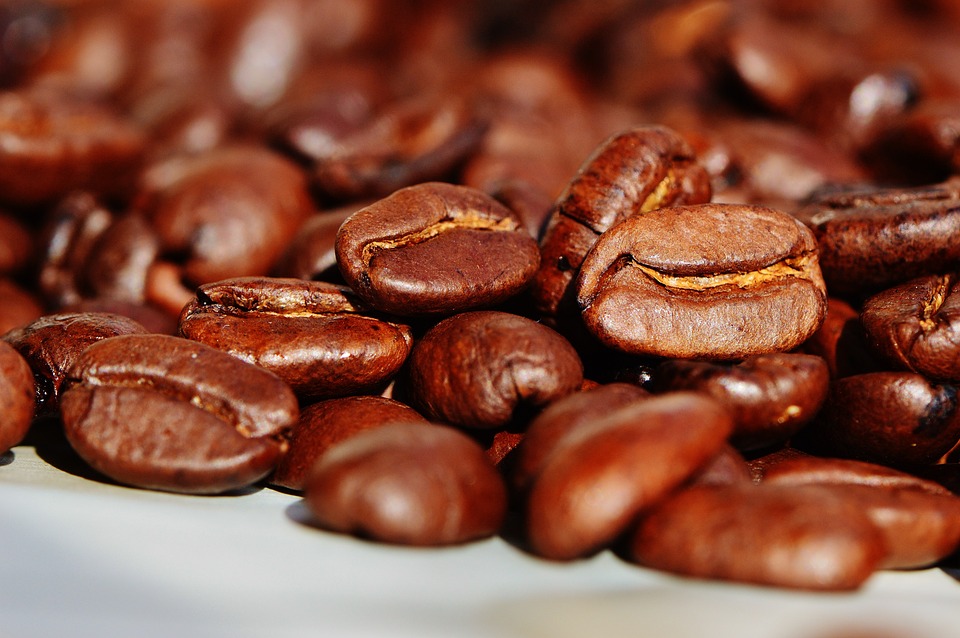
How Does Coffee Work?
A hot beverage can be prepared from the roasted seeds of the coffee plant. There are more than eighty distinct varieties of coffee plants in existence.
The most studied substance found in coffee is caffeine. The chemical structure of caffeine is consistent regardless of whether it appears in coffee, tea, or energy drinks. It is the factor that is responsible for increasing our alertness.
This action prevents adenosine from acting upon our nervous system, resulting in an increase in alertness. This stops adenosine from having any effect on our nervous system, leading to an increase in alertness. Adenosine prevents us from feeling alert and awake, so when it is not present we become not as drowsy and more awake.
People who drink caffeine every day may become used to most of its effects. Those who need to drink coffee to be alert have to drink it to achieve the same wakefulness as people who don’t rely on coffee. It will not give you a lasting lift for the day if you drink coffee in the morning.
How the Coffee Diet Works
A recently developed way of eating has been publicized by Dr. Bob Arnot’s 2017 book, “The Coffee Lover’s Diet”. Dr. Arnot proclaims that ingesting at least three mugs of light-roast coffee every day and having a diet rich in fiber are the fundamental components of shedding weight.
Although the given diet plan is usually secure for the majority of individuals and promotes nutritive food options, there is no existing ‘miracle’ weight loss drink. In addition, there’s not sufficient, consistent proof indicating coffee aids with weight reduction, and the scheme might be complicated to keep at it for an adequate amount of time to observe results.
Dr. Arnot suggests that light roast coffee should be consumed because it has more polyphenols, substances that guard our cells against harm caused by unstable molecules. A study conducted in March 2017 and published in “Phytochemical Analysis” confirms the assertion made by the speaker: the espresso which is darker and prepared through a slowly done roasting process has a lower antioxidant potency as compared to faintly roasted brews. This could be because of the antioxidants getting destroyed in the heat during the roasting process.
You should drink no less than three cups of coffee a day while on this diet, however, you can have more than that if you wish. Both caffeinated and decaf coffee are allowed.
Furthermore, Dr. Arnot suggests consuming foods plentiful in fiber. This type of nutrition plan is akin to the Mediterranean approach as it emphasizes on healthy whole grains, fruits, vegetables, lean animal proteins, plant-based proteins, and healthful fats like extra-virgin olive oil, nuts, seeds, avocados, and fish.
The diet book outlines meals that consist of roughly 1,500 calories on a daily basis, and these meals contain limited amounts of processed items. A low-calorie diet may be beneficial for weight reduction, but it could potentially not give enough energy to certain individuals.
Coffee Tricks to Lose Weight
Adding coffee as a drink to any weight-loss strategy can be beneficial since it does not contain calories. Still, using milk, sugar, or any other ingredients can increase the amount of calories you consume.
But per Kaiser Permanente, here are a few tricks to help you make more diet-friendly coffee drinks:
- Drink it black
- Swap out higher-fat milk and creamers for unsweetened plant-based milk like oat, almond, or soy milk
- Skip sweeteners and instead add flavor by mixing cinnamon, nutmeg, cacao, or ginger to your brew
Does Coffee Promote Weight Loss?
The findings on the effect of coffee on weight management are inconclusive and varied as to how they were evaluated. Additionally, certain scientific research isolates and examines specific factors of coffee, such as caffeine, instead of looking at the beverage as an entirety, which makes it more challenging to compare the results from various studies.
Coffee might be able to influence our figure in a direct way, for instance, affecting our metabolic rate, as well as in an indirect manner, for example, causing changes in our sleeping habits. We will analyze the research related to each potential impact of coffee on our weight status to determine if the data confirms the theories.
Coffee and our metabolism
Research has revealed a connection between reduced body weight, BMI, body fat, and increased caffeine consumption. More specifically, a review of randomized controlled trials pointed to such a relationship. Some academics claim that the consequences of weight can be attributed to caffeine boosting our metabolic rate.
The rate at which we burn energy when we are not engaging in any physical activity is referred to as our resting metabolic rate. Essential activities such as pondering, inhaling, and other essential processes require a certain amount of energy, and this is referred to as our Resting Metabolic Rate.
It’s possible that caffeine elevates our metabolic rate by raising the amount of brown fat that we have in our bodies. Brown adipose tissue (BAT) is a type of fat found in the body that produces heat and boosts metabolism.
A research project examined the influence of caffeine on brown adipose tissue. It was discovered that 65 mg of caffeine (approximately the same amount as a weak cup of coffee) both in a test-tube environment and also in 9 people studied, would cause an increase in fat browning. The study provides hope, however, the sample of participants involved is too limited to come to sound conclusions.
It must be taken into consideration that although the investigations disclosed a much bigger weight reduction in the caffeine segment than in the controls, the normal weight reduction of the caffeine set was below two kilograms in the four weeks of the experiment. It appears that caffeine only has a slight ability to aid with weight loss.
Plus, the studies mentioned are all short-term. As coffee aficionados build up a resistance to the majority of its effects, it is plausible that this also applies to any potential effects espresso has on our metabolic rate. In other words, even though caffeine might increase one’s metabolism in the short run and could lead to some weight loss, this effect may not remain permanent.
Coffee and sleep
Getting adequate sleep is essential for maintaining a healthy weight. It is known to play an important role in regulating metabolism and keeping hunger hormones in check. Sleep deprivation can lead to the greater wanting of food, sway food preferences, and diminish the amount of energy expended.
Coffee has an energizing effect created by the caffeine it contains, making us feel more alert and awake. The effect that coffee has on our slumber depends on the individual’s capacity to handle it, the quantity they drink, and when they consume it in reference to bedtime.
Yet we are aware that, on average, the effects of caffeine take six hours to drop by half in grown-ups. It takes about six hours for the body to metabolize and eliminate one-half of the caffeine content.
If you drink coffee during the day, approximately half of the caffeine remains in your body until 6 PM, and a quarter stays until 12 AM. It is conjectured that the results of caffeine consumption from a single cup of coffee may linger within the human body for up to a day and a half.
The remaining amount of caffeine in your body can stop you from getting a good night’s sleep – even if you are accustomed to drinking it regularly. It needs to be mentioned that having caffeine in their system does not necessarily stop people from dozing off, but the quality of restful sleep is diminished and the degree of deep sleep is impaired.
Additionally, a few individuals may experience uneasiness after consuming beverages that contain caffeine, which can adversely affect their rest.
Coffee and our appetite
The existing research on the impacts of coffee on appetite or the amount of food consumed is scarce as it is a relatively novel area of exploration.
An exploratory study examined the repercussions of coffee and caffeine consumption on the urge to eat and the amount of food consumed by individuals of a healthy weight. No discrepancies in the desire to eat or quantity of food consumed by individuals were established when exposed to caffeinated coffee or caffeine pills in comparison to decaffeinated coffee or dummy capsules.
However, there were only twelve participants in this study. More thorough research with a broader range of participants is needed in order to ensure that the discoveries pertain to a wider population as opposed to being slanted by individual disparities.
An examination akin to the one in question looked into the same issue but in individuals who were both hale and overweight. This investigation incorporated various quantities of caffeine to analyze if an elevated quantity had a bigger impact on hunger. The results of this study revealed that overweight people ate less food after ingesting a large amount of caffeine; however, no change was observed in the food consumption of those with a normal weight. Neither group reported a change in appetite.
These two investigations were well structured, yet they had an incredibly small sample size and concentrated on the immediate consequences of coffee or caffeine on one’s hunger and eating. More expansive research with a larger sample size needs to be conducted to determine what the lasting effects of drinking coffee are on one’s hunger.
Coffee and exercise
Studies appear to show that taking in rather large amounts of caffeine results in better physical performance when performing the exercise. The only individuals who experienced this effect were those who are not habitual caffeine users.
Furthermore, a modestly sized yet well-crafted research venture examined the effect of a compound comprising caffeine and polyphenol on participants’ metabolism and fat-combusting capacity in the wake of engaging in sprints, along with their physical delivery.
Chemicals found in plants that carry out the function of antioxidants are referred to as polyphenols. Coffee contains a large number of polyphenols. Caffeine and polyphenols are both substances found in coffee.
Results indicated that when people ingested the caffeine and polyphenol supplement they burned fat quicker and expended more energy after jogging exercises. It appears that physical performance in sprinting activities remained the same, suggesting the potential for weight loss to have an effect that is apart from whatever changes take place in physical performance.
This investigation combined caffeine and polyphenols, so it is uncertain as to which component was responsible for the outcome, or if it was the joined components, which is common in a regular cup of coffee.
Possible Drawbacks of the Coffee Diet
Increasing the quantity of coffee you consume each day could have some drawbacks. Here are some of the potential cons to trying the coffee diet for weight loss:
1. It May Not Provide Enough Calories
Some tout the coffee diet to lose weight fast. The cause of the accelerated rate of reduction in weight may be connected to daily meal patterns that total approximately 1500 calories.
However, some folks are not being given enough energy by consuming this amount of calories. Harvard Health Publishing declares that for people designated female at birth, the minimal daily caloric intake should be at least 1,200, and for those designated male at birth, it should not dip below 1,500 calories.
Tip
The optimal approach to slimming down (proposed by the coffee diet or some other diet) is to have a negative energy balance, meaning you have a higher calorie expenditure than you have calorie intake. Creating a caloric deficit of 500 to 1,000 calories every day is usually necessary to safely diminish your weight by 1 to 2 pounds each week, per the Mayo Clinic. If you try to lose weight more quickly than what’s advised on the coffee diet, there is a chance that you could lose muscle mass; this could end up slowing your metabolism and the rate of weight loss.
2. Caffeine Can Lead to High Blood Pressure
Those following the coffee diet can still drink decaf, but they are typically encouraged to consume at least three cups of regular coffee each day. It is obvious why the majority of studies about the effect of coffee on weight reduction are concerned with the beverage’s caffeine concentration. Excess consumption of caffeine may lead to elevated blood pressure levels.
A survey published in Clinical Nutrition in December 2016 surveyed 1,100 participants and the results showed that those who drank three or more cups of coffee on a daily basis were found to have higher blood pressure than those who abstained from coffee completely. Discussing your blood pressure with your doctor prior to elevating your caffeine consumption is recommended.
3. Coffee Can Cause Digestive Problems
Problems with digestion may be of concern for those following a coffee diet. As previously stated by Johns Hopkins Medicine, consuming caffeine – which is found in coffee – can increase a person’s probability of having diarrhea. Due to this, it is advisable to avoid caffeine if one has been diagnosed with irritable bowel syndrome.
4. Caffeine Sensitivity Can Cause Other Symptoms
People who are particularly sensitive to caffeine may encounter jittery feelings or insomnia when consuming the Mayo Clinic’s suggested three cups of coffee.
Remember, the Mayo Clinic advises all adults not to exceed 400 milligrams of caffeine daily, equaling the amount in four cups of brewed coffee. You could experience additional symptoms like headache, irritability, and muscle twitching if you take in above the specified amount.
5. Caffeine Can Mess With Your Sleep
The Mayo Clinic suggests that one should not consume more than 400 mg of caffeine per day; exceeding this amount, or having a sensitivity to caffeine, could result in poor sleep. The Mayo Clinic states that not getting a sufficient amount of rest could impair your ability to focus and perform during the day.
Can Coffee With Lemon Help You Lose Weight?
The Cleveland Clinic states that adding lemon to your coffee is not a successful way to lose weight. It is actually not recommended to add lemon to coffee beverages made with dairy, such as lattes, because the combination can cause the milk to curdle.
Is the Coffee Diet Healthy?
Weight loss through the coffee diet focuses on a wellness-based, plant-based approach to eating, which includes fresh and seasonal ingredients, much like a Mediterranean lifestyle. Putting emphasis on whole, unprocessed foods is beneficial, however, being overly restrictive and banning all processed or convenient foods may create difficulty in following the plan.
The menus of the coffee diet are probably quite low in caloric intake, with an estimated 1,500 calories being consumed daily. This amount may not be maintainable over a long time period for a lot of people.
Studies done on coffee’s ability to reduce hunger and spark weight loss have been few and contradictory, so it is not a surefire solution for shedding pounds. Coffee offers numerous antioxidant properties, but it does not provide any other nutritional advantages.
Consuming coffee can cause gastric distress, including acid reflux and loose bowels. Excessive consumption of caffeine can lead to elevated blood pressure, agitation, a faster heart rate, and difficulty falling asleep.
To sum up: Talk to your physician or a nutritionist before attempting to go on the coffee diet or any other eating plan to lose weight in order to determine if it’s the right choice for you.














